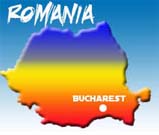Romanians head to polls in presidential election
 Bucharest - Voters in recession-racked Romania went to the polls Sunday to elect a new president.
Bucharest - Voters in recession-racked Romania went to the polls Sunday to elect a new president.
Conservative incumbent Traian Basescu is seeking a new term. His main rivals are Social Democrat Mircea Geoana and Crin Antonescu, chairman of the National Liberal Party (PNL).
Opinion polls suggest that none of the 12 candidates in the race will achieve an absolute majority, making a run-off on December 6 the most likely outcome.
Analysts said the outcome of the election could determine the future economic course of Romania, which has been a member of the European Union since 2007.
A key issue hanging in the balance is a 20-billion-euro (29.9-billion-dollar) bail-out led by the International Monetary Fund (IMF).
The IMF has delayed this latest loan tranche until the Romanian government, whose premier is picked by the president, enacts economic reforms.
The country has been politically deadlocked since the collapse last month of an uneasy "grand coalition" government of the centre- left Social Democrats (PSD) and the centre-right Democrat-Liberals (PD-L) under Prime Minister Emil Boc (PD-L).
Two weeks after the coalition split, Boc lost a vote of no- confidence in parliament. Since then he has headed a caretaker administration.
The Social Democrats and National Liberals agreed on a successor to Boc as prime minister, but the president, a close ally of Boc, refused to approve the nomination.
If Basescu wins re-election, the stalemate is likely to continue, leading to early parliamentary elections and a further delay in IMF support, analysts said.
Alternately, a victory by either Geoana or Antonescu could speed the formation of a functioning and creditworthy government, and prompt release of the delayed 20-billion-euro loan tranche from the IMF, EU and other lenders. Romania needs the money to pay pensions and state-sector salaries.
For the first time, presidential balloting in Romania will be held a year after parliamentary elections. The president's term of office was extended in 2004 from four to five years in order to decouple the two votes and free parliamentary polls from heavy influence by presidential candidates.
As a result, the past two years in Romania have been marked by permanent electioneering, spurred on by a president who revels in being a "player."
Basescu added a referendum to Sunday's ballot on downsizing the 471-member parliament from a bicameral to a unicameral body. The result of the vote will not be legally binding, but the proposal is popular. Widely accused of corruption and idleness, the parliament is one of the most disliked institutions in Romania. (dpa)